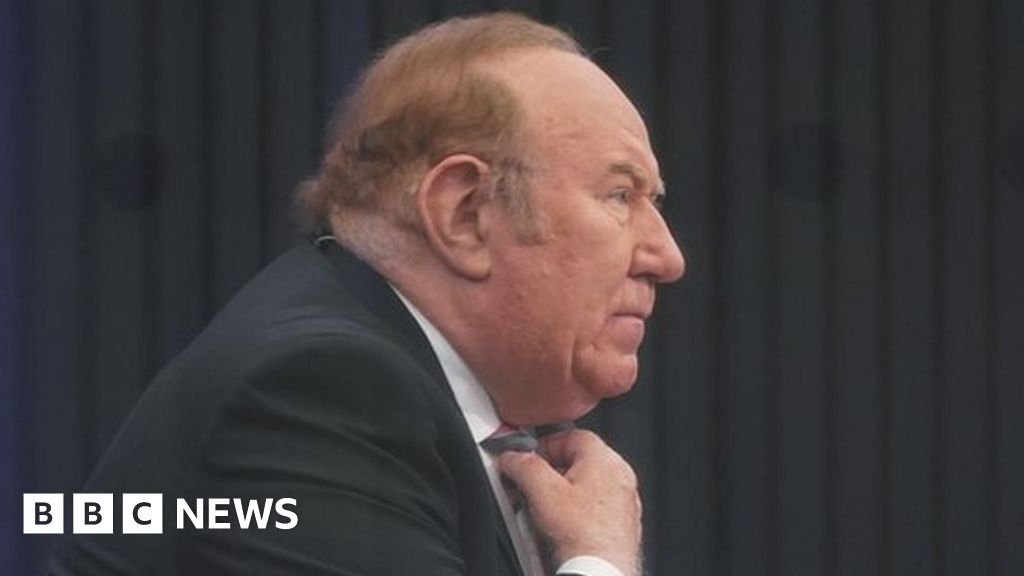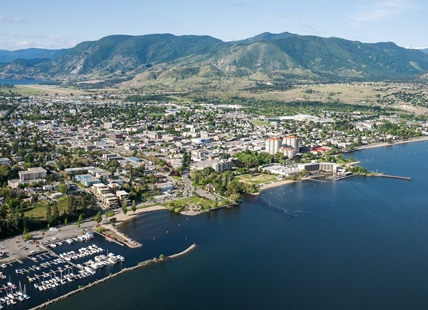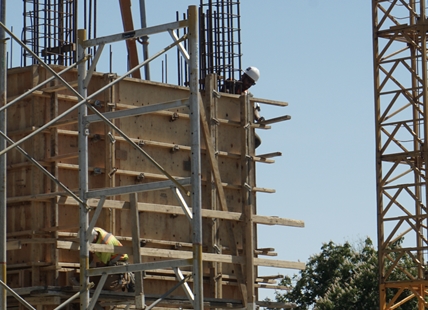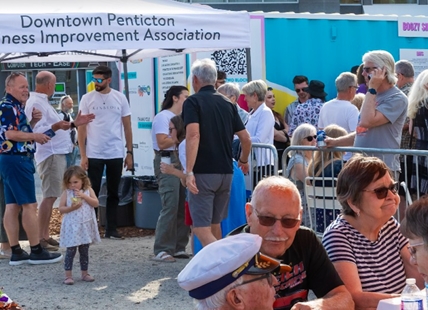Grenfell Tower inquiry: Reckless firms showed neglect - lawyer
A QC representing many victims of the 2017 disaster strongly criticises several construction firms.
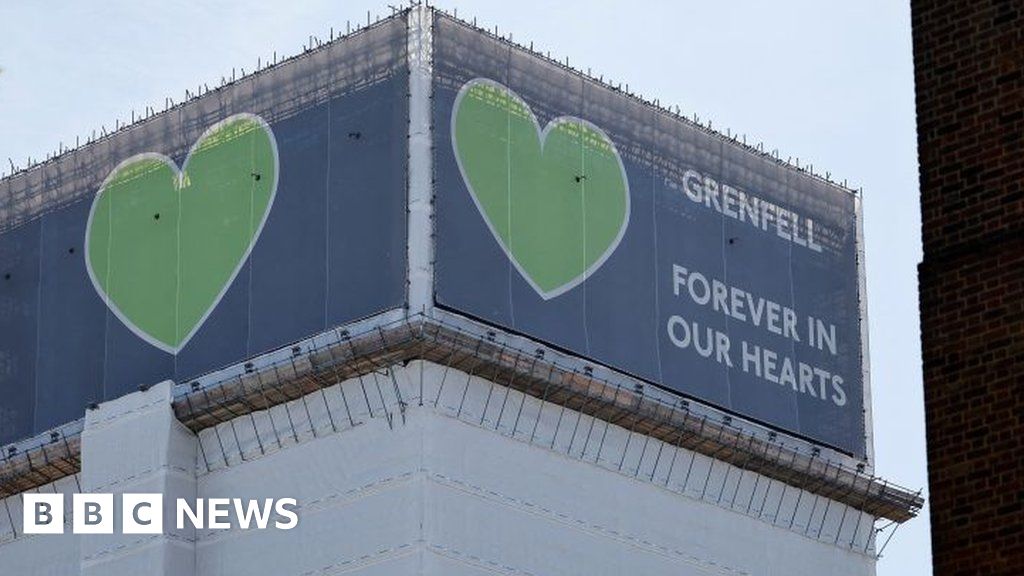
By Tom Symonds BBC News
- Published
A barrister for victims of the Grenfell Tower fire has told the public inquiry that a "total neglect of safety" was at the heart of the disaster.
Stephanie Barwise QC said the refurbishment of the tower, which contributed to the 2017 fire, was "hastily conceived by an inept design team led by hapless lead consultants".
She said workers and contractors were "reckless" and some practised "fraud".
The inquiry is hearing final statements about Grenfell's refurbishment.
The Royal Borough of Kensington and Chelsea has admitted a further series of failures in the way it oversaw the body managing its houses and flats.
Ms Barwise represents some of the bereaved, and survivors of the fire at the 24-storey tower in north Kensington, west London, along with others living in the estate where it happened.
She strongly criticised all of the companies involved in the refurbishment, completed in 2016, to add a waterproof and insulating cladding system to Grenfell's exterior.
Architect Studio E was a "hapless" lead consultant, leading an "inept" design team, she said. Many of the professionals and contractors involved did not read government fire safety guidance, the inquiry heard.
"Grenfell demonstrates the existence of a culture of non-compliance within certain sectors of the construction industry. Put bluntly, there is a kind of recklessness, as to whether or not compliance is achieved," she said.
Prashant Popat QC, acting for Studio E, which has since gone into administration, said it should not be judged in hindsight, because it had relied on the advice of experts.
He said, as a result, hundreds of buildings, designed by a wide range of architects, had been identified with dangerous cladding and that Studio E had not "departed from the norm".
"The former Studio E employees are devastated that in spite of this, in spite of the way it carried out its duties, such a horrendous tragedy could happen," he said.
Contractor Rydon and cladding installers Harley saved £327,000 using a cheap combustible aluminium cladding panel in a form more likely to spread fire, it was said. Rydon "secretly pocketed" additional savings, the inquiry heard.
Harley failed to warn about the fire risks the design posed, the inquiry was told.
A fire safety consultant Exova incorrectly advised that the cladding would have no adverse effect in the event of a fire and "bears significant responsibility", Ms Barwise said.
She reserved particular criticism for Celotex and Kingspan which manufactured insulation used at Grenfell, and Arconic which made the cladding.
Their "widespread lack of candour is an affront to the dead, to the bereaved, and to the former residents of Grenfell," she said
Kingspan continued to sell its combustible K15 insulation boards until 2020 on the back of a discredited test which "did not reflect the product being sold," she said.
Building regulations guidance prohibits the use of combustible insulation at heights above 18m (59ft).
When other professionals failed to realise that the product breached building regulations internal Kingspan emails were "gleeful", according to Ms Barwise.
"Kingspan's fingerprints are all over this disaster," she concluded.
The Irish manufacturer's insulation was one of two types installed on the building, making up about 5% of the total, although it claims it was never told its product would be used.
Celotex, a second manufacturer, had "admitted faults and taken action," Ms Barwise said.
It "dishonestly" branded its RS5000 insulation as safe for high rise buildings by using extra components to improve its performance in fire tests.
The process of testing products "may properly be regarded as positively dangerous, since it creates a veneer of respectability, which in some cases, serves to conceal test results obtained by dishonest testing," she told the inquiry.
'Condemnation'
Arconic, the multinational metals manufacturer, failed to fully inform its customers that when its cladding was used in a folded box design, known as a 'cassette', that it would only achieve the second-worst European test classification for fire, the inquiry was told.
The company merited the "strongest condemnation for its failure to inform customers of this safety critical fact," Ms Barwise concluded.
The British Board of Agrement (BBA) which certifies building products, was unaware of issues with the Arconic cladding until approached by a BBC News investigation in 2018 .
It was severely criticised as a "hopelessly weak institution, too willing to please commercial clients at the expense of ensuring appropriate safety standards".
The Building Research Establishment, BRE, was "complicit" with fraudulent manufacturers, according to the victims' barrister.
She urged the inquiry to recommend a ban on the use of any material on tall buildings which can burn.
The Royal Borough of Kensington and Chelsea admitted that there weren't enough council officers overseeing the independent Kensington and Chelsea Tenant Management Organisation (KCTMO), which ran the council's flats and houses.
The council's barrister James Maxwell-Scott QC also said there was no staff training in this area, no document setting out the council's responsibilities, and insufficient consultation with residents.
The lawyer for KCTMO, James Ageros QC, told the inquiry the disaster could have happened at any other building clad in similar materials amid what he said was a national crisis.
He also argued the KCTMO relied on industry experts, such as the contractor Rydon, which claimed to have managed many cladding projects.
The KCTMO, he said, was not "buck-passing", but had delegated the responsibility for ensuring safety to its advisers.
Police are looking for evidence of possible corporate manslaughter, in a long-running investigation, which will not conclude until the end of the public inquiry.
If you want to find out more about the Grenfell Tower public inquiry you can find all episodes of the Grenfell Tower Inquiry podcast on the BBC website.
Related Topics
-
- Published
- 4 days ago
-
- Published
- 5 September

 Valandos
Valandos 







